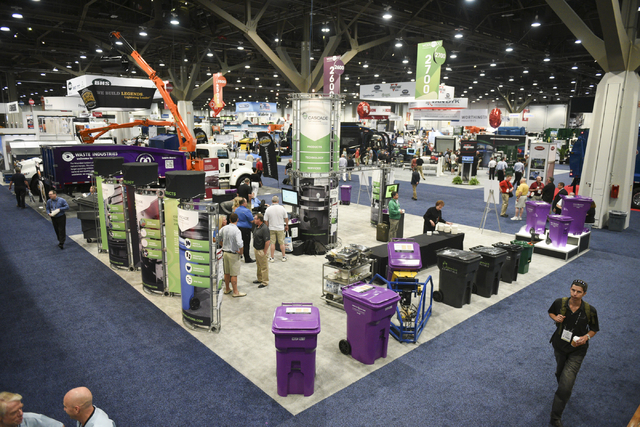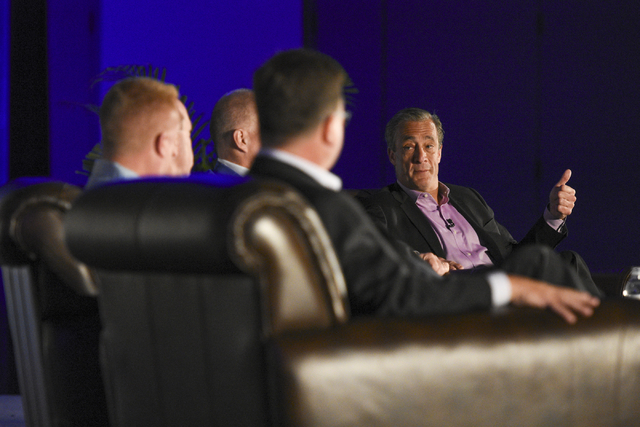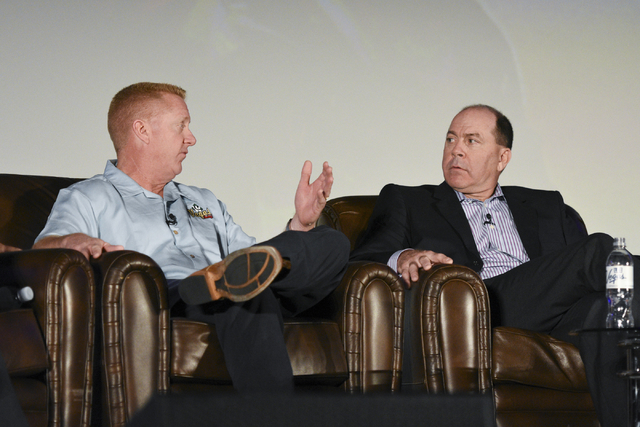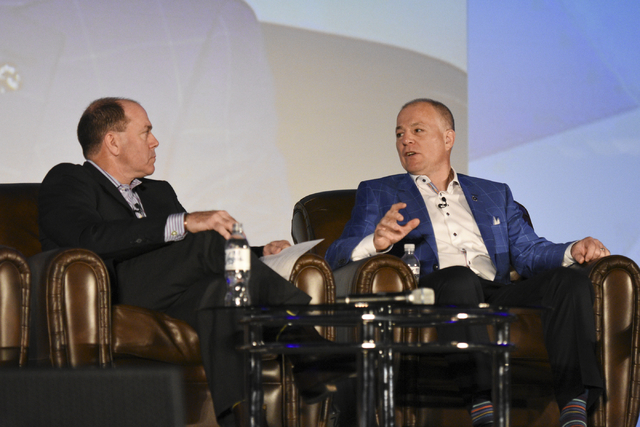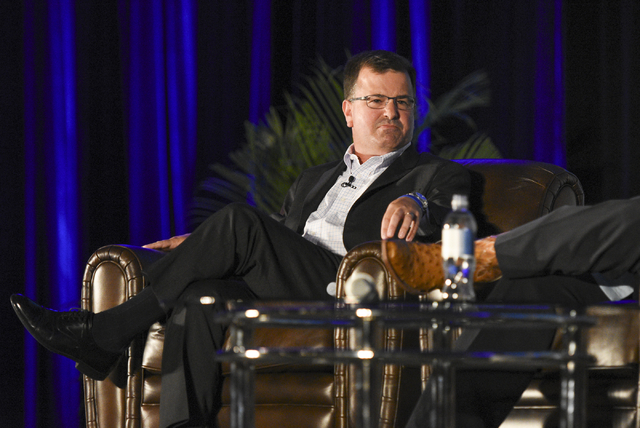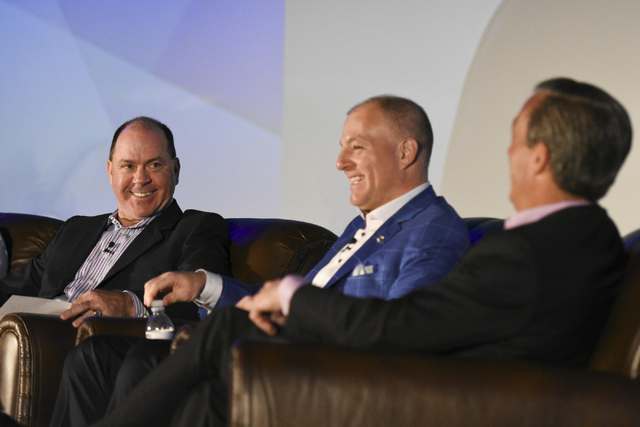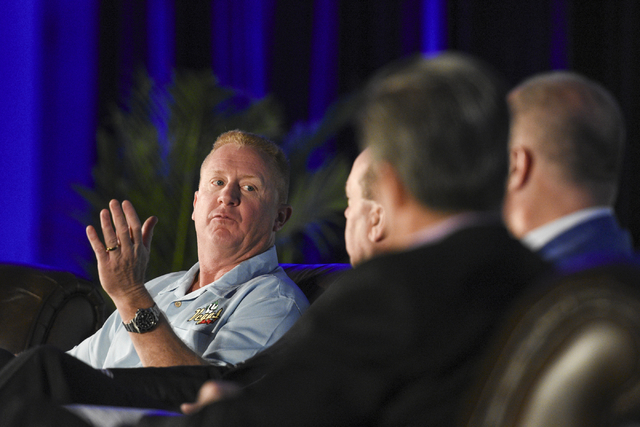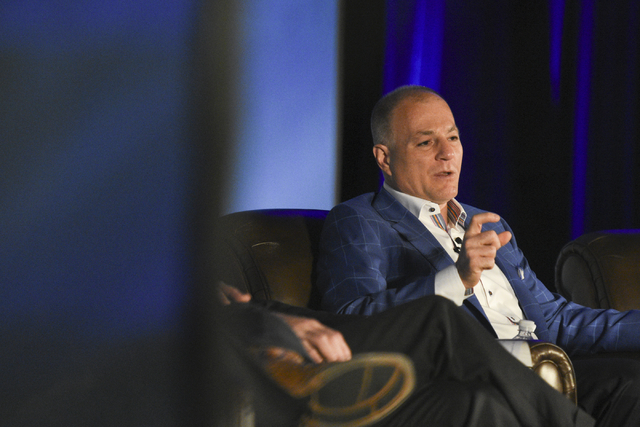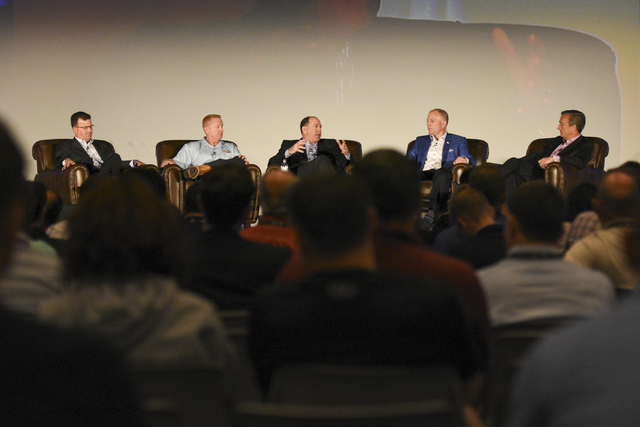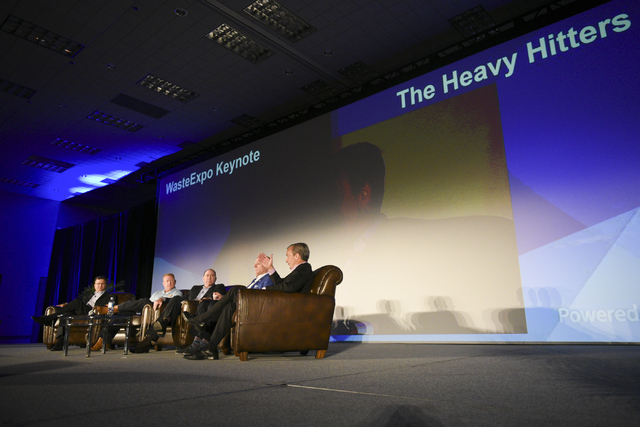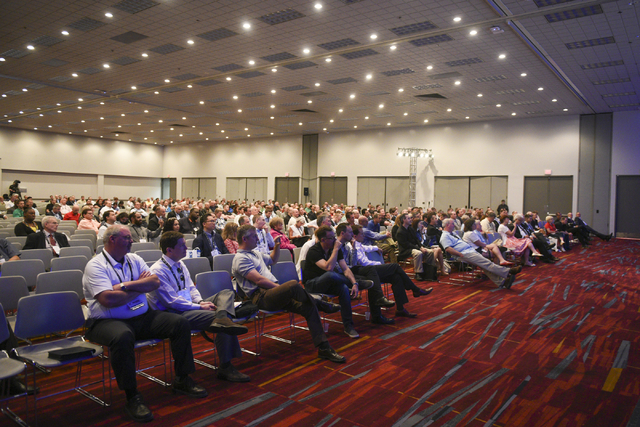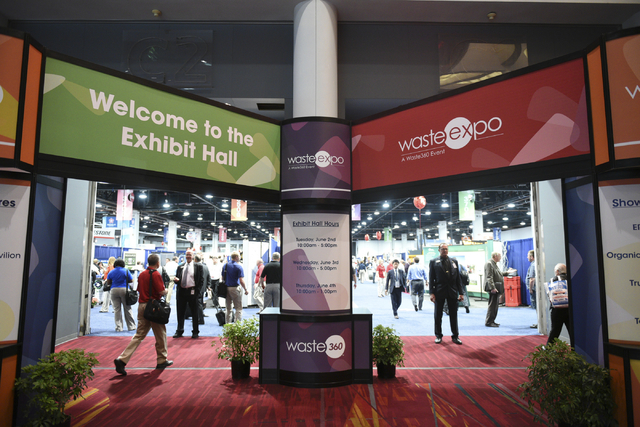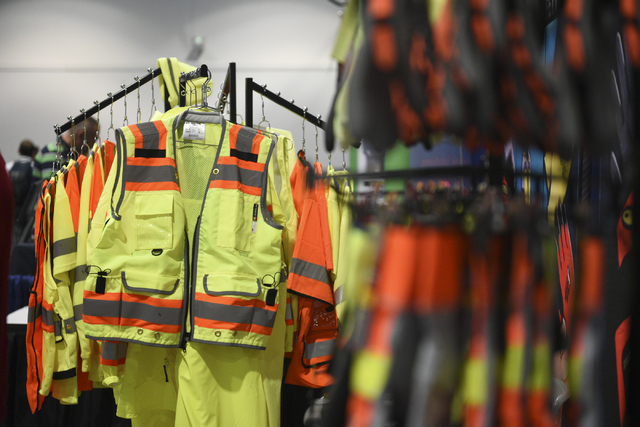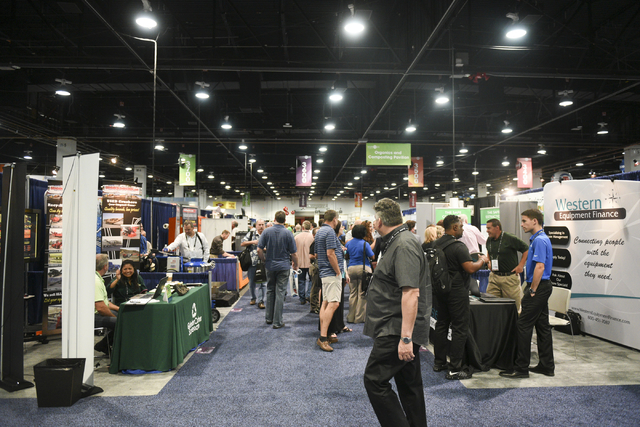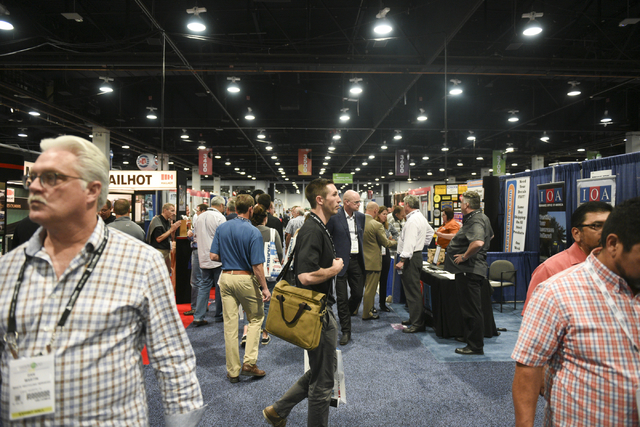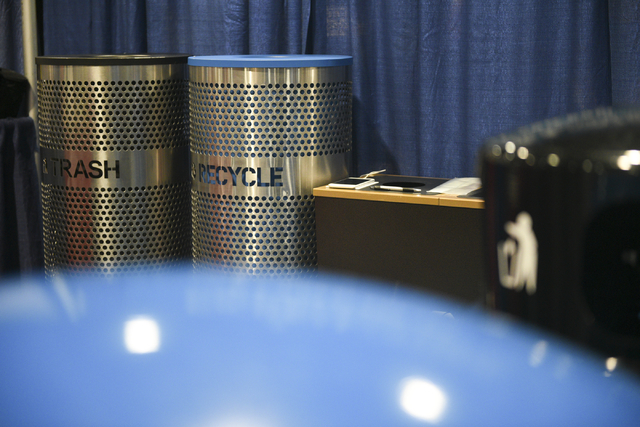‘Heavy Hitters’ in waste management call recycling ‘broken model’
The “Heavy Hitters” in waste management came out swinging in Las Vegas on Wednesday with one them calling recycling a “broken model.”
“When you sell the output for less than what your output costs are, you don’t make money,” Waste Management CEO David Steiner said. “You’ve got to have a contract that guarantees a return.”
After a three-year absence in Las Vegas, the annual Waste Expo returned to the Las Vegas Valley this week with nearly 600 exhibitors and roughly 12,000 convention participants. The four-day industry trade show, which kicked off Monday and concludes today, also welcomed more than 2,000 international participants from 80 countries.
On Wednesday, Steiner joined CEOs from Progressive Waste Solutions, Advanced Disposal and Waste Connections for the conference’s keynote speech. The panel discussion was titled “Heavy Hitters.”
Representing four of the world’s top 10 waste companies, the CEOs discussed the industry’s rebound from the 2008 housing crisis, while focusing on the business model of recycling.
Recycling leaves companies with an excess of raw materials, said Waste Connections CEO Ron Mittelstaedt, with a limited market for the final product.
“Recycling is what customers want and demand,” Mittelstaedt said. “But we’re bringing in an unburdened amount of raw material.”
On the exhibition hall floor, Republic Service’s government affairs representative Steve Carr echoed the messages from his competitors’ CEOs.
One ton of recycled material can cost anywhere from $65 to $100 to process, compared with $20 to $40 to dispose the same material in a landfill, Carr said. The product of the recycled material is often given away for free because there is a small market for certain recycled items such as glass and paper.
“You pay the money to take it through the process, then there’s nothing to do with it,” Carr said. “You basically have a product that’s worthless and you have to give it away.”
Republic Services of Southern Nevada serves Southern Nevada.
Recycling costs aren’t the only challenges facing the waste industry.
Perhaps above all, waste companies, which dropped between 150 and 200 million tons of trash in U.S. landfills last year, are constantly fighting for their public image.
Scott Schreiber, Waste Connections’ vice president of disposal operations, said he joined the company because he is an environmentalist.
Waste companies are often labeled as irresponsible, Schreiber said, because the public doesn’t account for their recycling and conservation efforts — focusing instead on waste disposed in landfills.
Waste Connections, Republic Services and Waste Management are among the three largest recycling companies in the world, Schreiber said, and also collect methane gas from their landfills to sell to local energy companies.
“The greatest danger to landfills is contaminating the air,” Schreiber said. “So we suck the gas out and use it for energy recovery. It’s green energy.”
Gas from an average-sized landfill in the United States could provide a consistent energy supply for up to 4,000 homes, Schreiber said.
“People have this mindset that we’re only waste companies,” he added, “But we’re also recycling and energy supply companies. We need to change people’s perception.”
Contact Chris Kudialis at ckudialis@reviewjournal.com or 702-383-0283. Find him on Twitter: @kudialisrj.



